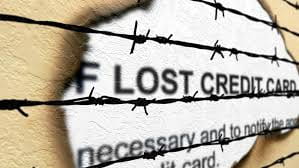Ignoring a problem doesn’t make it go away. Let me repeat that. IGNORING A PROBLEM DOESN’T MAKE IT GO AWAY.
When something is troublesome to you, it’s easy to procrastinate. If you stick your head in the sand like an ostrich, you don’t see the thing that needs to be addressed. And you feel like it goes away. But it doesn’t.
That room that needs to be cleaned will still need to be cleaned even if you have shut the door. That empty pantry won’t magically fill itself if you Door Dash for a few days. That exam you are dreading will still happen, whether you prepare or not. And unpaid bills will remain unpaid and possibly turn into a much uglier situation if you don’t make payment.
Unpaid bills are likely the worst thing to procrastinate on. There are all sorts of consequences. And none of them are easy to bounce back from. Late on your credit card payment? Not only will you be charged a late fee, you will likely be looking at a higher interest rate on the next month’s bill. Late on an insurance payment? You may find yourself uninsured when you need insurance the most (such as an accident or major illness). Late on a utility bill? The utility could be turned off. Late on a car payment? You could end up dealing with the repo man. Late on rent? That could eventually get you evicted. And any of these things will also have a negative impact on your credit report, which will make your life more difficult going forward. Good credit is necessary for things like signing a lease, getting a loan (yes…even a Grad PLUS or private educational loan), getting a credit card, or getting insurance. And really bad credit history can cause struggles with the character and fitness check for the bar exam.
If you are facing a troublesome situation, it’s best to tackle it head on. Admit to yourself that you’ve gotten yourself into a sticky spot, and do what you can to fix it. Messy room? Clean it a little bit each day. Empty pantry? Place an online order for pick up and get some groceries. Dreaded exam? Get to outlining! No money to pay a bill? Reach out to the creditor to see if they can work with you. Almost every problem has a solution. If you can’t find it yourself, ask for help.
Ignoring a problem doesn’t make it go away. Don’t be an ostrich.









